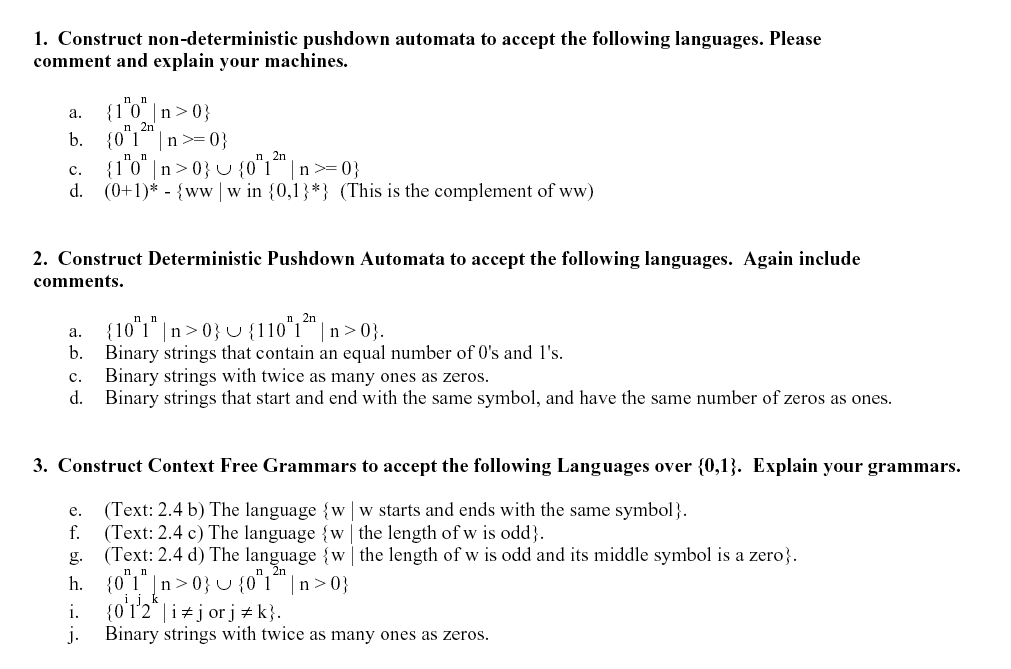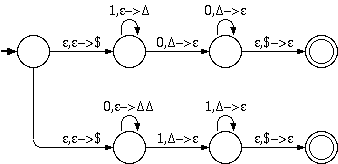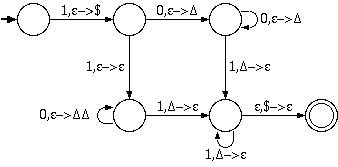Theory of Computation
PDA Examples
PDAs and CFGs

Solutions 1: a, b, c, d. 2: a, b, c, d. 3: h, i, j;
Solutions
NPDAs
Construct non-deterministic pushdown automata to accept the following languages.
a. {1n0n | n>0}


c. {1n0n | n>0} U {0n12n | n>=0}

d. (0+1)* - {ww | w in {0,1}*} (complement of ww)

DPDAs
Construct deterministic pushdown automata to accept the following languages.
a. {10n1n | n>0} U {110n12n | n>0}

b. Binary strings that contain an equal number of
1s and 0s.

c. Binary strings with twice as many 1s as 0s.

d. Binary strings that start and end with the same
symbol and have the same number of 0s as 1s.

CFGs
Construct context free grammars to accept the following languages.
e. (2.4b) {w | w starts and ends with the same symbol}
f. (2.4c) {w | |w| is odd}
g. (2.4d) {w | |w| is odd and its middle symbol is 0}
h. {0n1n | n>0} U {0n12n | n>0}
S -> 0A1 | 0B11
A -> 0A1 | e
B -> 0B11 | e
S -> AC | BC | DE | DF
A -> 0 | 0A | 0A1
B -> 1 | B1 | 0B1
C -> 2 | 2C
D -> 0 | 0D
E -> 1 | 1E | 1E2
F -> 2 | F2 | 1F2
j. Binary strings with twice as many 1s as 0s.
S -> e | 0S1S1S | 1S0S1S | 1S1S0S